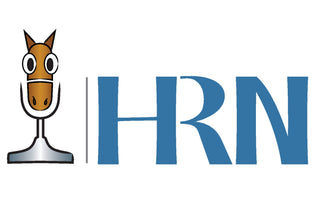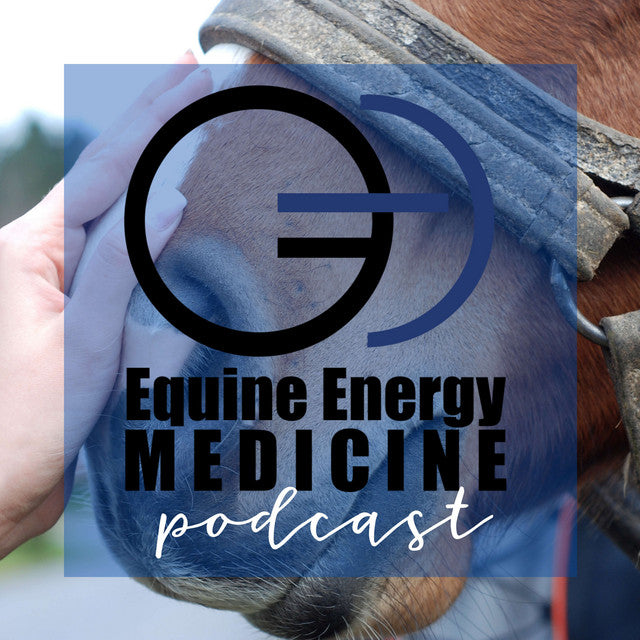
It is not uncommon for horses to feel anxious or nervous in certain situations, from stress due to travelling or moving to a new location, there are several contributing factors.
What’s important is that you understand what is causing your horse to feel anxious in the first place, and how you can help your horse overcome these feelings of anxiety and feel comfortable once again.
That’s why we have put together this blog post providing tips and advice on how you can calm a nervous or anxious horse.
But first, how do I know if my horse has anxiety?
Horses show anxiety in different ways, but an important thing to look out for and a sign that your horse may be anxious is if you notice unusual or poor behaviour, such as, biting, bucking, rearing, spooking easily or bolting.
Other signs your horse may be anxious are, excessive chewing or grinding of teeth, weight loss, diarrhoea or excessive sweating, just like humans horses sweat when they are nervous too.
Look out for these signs and changes of behaviour to understand if your horse needs some extra support, being aware of what is causing the anxiety will be the key to resolving the problem. So let’s look at some common causes that trigger stress and anxiety in horses.
What triggers stress in horses?
Chronic stress in horses is most often the result of changes in the horse’s environment or lifestyle. A change in your horse’s exercise routine or diet can be a huge part of long-term stress on your horse. It is essential to ensure that your horse is getting enough nutrients in their diet to support them and their exercise routine, so focusing on these steps is key to making your horse happy.
If your horse travels frequently for competitions or shows this could affect them emotionally due to the unfamiliar locations and changes in their routine. This is why it is important to have a good exercise and feeding schedule that is familiar to your horse.

8 ways to help calm an anxious and nervous horse
Horses are sensitive animals and their trust must be earned. Spend time with your horse, comfort them, be a reliable presence in their life and be patient and consistent when working with them.
For an anxious horse, it’s all about one-on-one interaction. A nervous horse probably won’t do best in an environment where they work with someone different every time, so ensure they are just working with one person to establish trust.
A consistent routine helps horses feel safe and secure, create a consistent feeding and exercise schedule, and make sure you stick to it.
Horses learn by repetition, if you want your horse to be confident in certain situations, the best thing you can do is to keep putting your horse in those situations. For example, if your horse lacks confidence in jumping, keep practising jumps and take them at a slow and steady pace to make them feel comfortable.
Some horses may just simply have a lot of stored energy that they need to burn to feel relaxed and calm. Allowing your horse time to exercise to release any nervousness or tension in a safe open area, can help them stay calm and relaxed in the long run.
No horse likes to be cooped up in a stable for hours on end, let them run free often, just as they would in the wild.

Horses need mental stimulation and activities to keep them engaged and entertained. Introduce toys and enrichment activities such as grazing balls, slow feeders, and obstacle courses.
The same goes for when you are riding your horse, if you take the same trail all the time your horse will get bored which can be a cause of stress. When you’re out riding try to do something different, like taking a different route or you could do some groundwork with your horse. Have some variety within their exercise routine.
Just like us humans, essential oils can help soothe and relax horses with anxiety. Lavender, chamomile, and ylang-ylang are all calming scents that can be used to help your horse relax and can be very effective.
However, these need to be introduced gradually and when your horse is in a calm state or it may have a negative effect. Before introducing essential oils to your horse, it’s best to consult with an experienced practitioner.
If your horse feels nervous or fearful in a certain situation, such as going into transportation for example, you can use positive reinforcement training techniques to keep them distracted from what is going on around them.
The concept of positive reinforcement is simple if you want to see good behaviour again, reward it. If we reward a horse for standing quietly while we get on, we make it more likely that he will stand quietly in the future. This will also help distract them in a situation that may make them nervous if your horse knows they will be rewarded this will have a positive effect on his mood.
While horses prefer things to stay as they are sometimes this just isn’t possible, you may need to change your horse’s feed or you may start a new job which means you’ll have to change when you visit your horse at the yard. Don’t worry though this doesn’t need to be a problem at all if you plan ahead and make the necessary changes slowly. Over a period of around two weeks (but no less than a week), change the time you visit your horse slightly (or give him a handful of the new feed if you’re changing his food). This will help your horse acclimatise to the change.
This is even more crucial when it comes to your horse’s feed, sudden changes will not only cause stress but, due to their sensitive digestive system, it can cause a number of digestive problems such as colic.

Horses are compassionate creatures and it’s in their nature to constantly observe each other and read each other’s body language, this helps them to stay alert in dangerous situations but it can also help them to know how to approach another horse and sense what sort of mood they may be in.
If you turn up to visit and you’re nervous and tense your horse will pick up on this so try and stay calm, keep your voice gentle and soft and never shout at your horse.
CBD For horses
CBD is a natural extract from the hemp plant that has been widely used in managing various medical conditions in humans.
However, many people are unaware that this plant compound has wellness benefits for animals as well. CBD is not just limited to cats and dogs, but can also be used for horses.

Horses may benefit from CBD in managing stress, anxiety, inflammation, and injuries.
CBD has therapeutic properties that can help alleviate these conditions and promote equine wellness.
Owners may use CBD for horses experiencing stress, anxiety, injuries, or inflammation. Learn more about how you can use CBD for horses and how this hemp flower extract could support your equine’s wellness.
Check out this blog we wrote that dives deep into the use of CBD for horses.
By recognising the causes and effects of stress in horses, you can take steps to relieve their stress and create a happy environment for them to thrive.
















